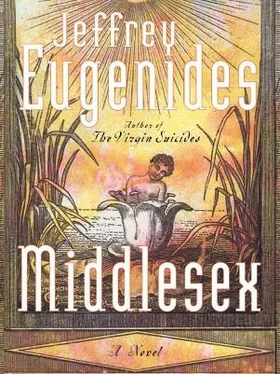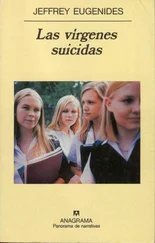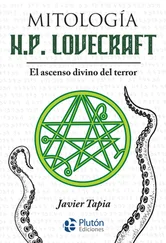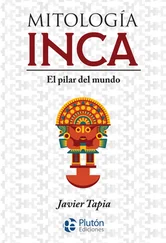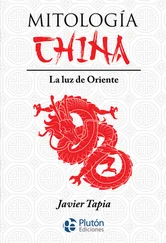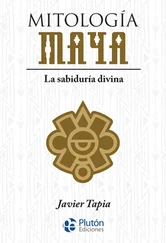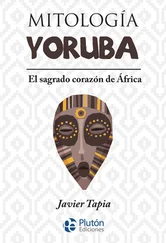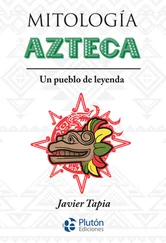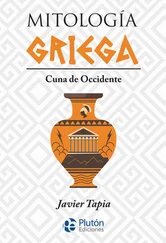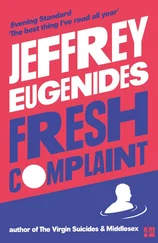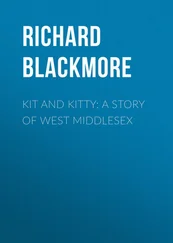Most important, Milton got out without ever seeing me again. That would not have been easy. I like to think that my father’s love for me was strong enough that he could have accepted me. But in some ways it’s better that we never had to work that out, he and I. With respect to my father I will always remain a girl. There’s a kind of purity in that, the purity of childhood.
It sort of still applies,” said Julie Kikuchi.
“It does not,” I said.
“It’s in the same ballpark.”
“What I told you about myself has nothing whatsoever to do with being gay or closeted. I’ve always liked girls. I liked girls when I was a girl.”
“I wouldn’t be some kind of last stop for you?”
“More like a first stop.”
Julie laughed. She still had not made a decision. I waited. Then at last she said, “All right.”
“All right?” I asked.
She nodded.
“All right ,” I said.
So we left the museum and went back to my apartment. We had another drink; we slow-danced in the living room. And then I led Julie into the bedroom, where I hadn’t led anyone in quite a long time.
She switched off the lights.
“Wait a minute,” I said. “Are you turning off the lights because of you or because of me?”
“Because of me.”
“Why?”
“Because I’m a shy, modest Oriental lady. Just don’t expect me to bathe you.”
“No bathing?”
“Not unless you do a Zorba dance.”
“Where did I put that bouzouki of mine, anyway?” I was trying to keep up the banter. I was also taking off my clothes. So was Julie. It was like jumping into cold water. You had to do it without thinking too much. We got under the covers and held each other, petrified, happy.
“I might be your last stop, too,” I said, clinging to her. “Did you ever think of that?”
And Julie Kikuchi answered, “It crossed my mind.”
Chapter Eleven flew to San Francisco to collect me from jail. My mother had to sign a letter requesting that the police release me into my brother’s custody. A trial date would be set in the near future but, as a juvenile and first-time offender, I was likely to receive only probation. (The offense came off my record, never interfering with my subsequent job prospects at the State Department. Not that I concerned myself with these details at the time. I was too stunned, sick with grief poisons, and wanted to go home.)
When I came out into the outer police station, my brother was sitting alone on a long wooden bench. He looked up at me with no expression, blinking. That was Chapter Eleven’s way. Everything went on in him internally. Inside his braincase sensations were being reviewed, evaluated, before any official reaction was given. I was used to this, of course. What is more natural than the tics and habits of one’s close relatives? Years ago, Chapter Eleven had made me pull down my underpants so that he could look at me. Now his eyes were raised but no less riveted. He was taking in my deforested head. He was getting a load of the funereal suit. It was a lucky thing that my brother had taken as much LSD as he had. Chapter Eleven had gone in early for mind expansion. He contemplated the veil of Maya, the existence of various planes of being. For a personality thus prepared, it was somewhat easier to deal with your sister becoming your brother. There have been hermaphrodites like me since the world began. But as I came out from my holding pen it was possible that no generation other than my brother’s was as well disposed to accept me. Still, it was not nothing to witness me so changed. Chapter Eleven’s eyes widened.
We hadn’t seen each other for over a year. Chapter Eleven had changed, too. His hair was shorter. It had receded farther. His friend’s girlfriend had given him a home perm. Chapter Eleven’s previously lank hair was now leonine in back, while the front retreated. He didn’t look like John Lennon anymore. Gone were his faded bell-bottoms, his granny glasses. Now he wore brown hip-huggers. His wide-lapel shirt shimmered under the fluorescent lights. The sixties have never really come to an end. They’re still going on right now in Goa. But by 1975 the sixties had finally ended for my brother.
At any other time, we would have lingered over these details. But we didn’t have the luxury for that. I came across the room. Chapter Eleven stood up and then we were hugging, swaying. “Dad’s dead,” my brother repeated in my ear. “He’s dead.”
I asked him what had happened and he told me. Milton had charged through customs. Father Mike had also been on the bridge. He was now in the hospital. Milton’s old briefcase had been found in the wreckage of the Gremlin, full of money. Father Mike had confessed everything to the police, the kidnapping ruse, the ransom.
When this had sunk in, I asked, “How’s Mom?”
“She’s all right. She’s holding up. She’s pissed at Milt.”
“Pissed?”
“For going out there. For not telling her. She’s glad you’re coming home. That’s what she’s focusing on. You coming back for the funeral. So that’s good.”
We were scheduled to take the red-eye out that night. The funeral was the next morning. Chapter Eleven had been dealing with the bureaucratic side of things, getting the death certificates and placing the obituaries. He asked me nothing about my time in San Francisco or at Sixty-Niners. Only when we were on the plane and Chapter Eleven had had a few beers did he allude to my condition. “So, I guess I can’t call you Callie anymore.”
“Call me whatever you want.”
“How about ‘bro’?”
“Fine with me.”
He was quiet, blinking. There was the usual lag time while he thought. “I never heard much about what happened out there at that clinic. I was up in Marquette. I wasn’t talking to Mom and Dad that much.”
“I ran away.”
“Why?
“They were going to cut me up.”
I could feel him staring at me, with that outer glaze that concealed considerable mental activity. “It’s a little bit weird for me,” he said.
“It’s weird for me, too.”
A moment later he let out a laugh. “Hah! Weird! Pretty fucking weird.”
I was shaking my head in comic despair. “You can say that again. Bro.”
Confronted with the impossible, there was no option but to treat it as normal. We didn’t have an upper register, so to speak, but only the middle range of our shared experience and ways of behaving, of joking around. But it got us through.
“One good thing about this gene I have, though,” I said.
“What?”
“I’ll never go bald.”
“Why not?”
“You have to have DHT to go bald.”
“Huh,” said Chapter Eleven, feeling his scalp. “I guess I’m a little heavy on the DHT. I guess I’m what they’d call DHT-rich.”
We reached Detroit a little after six in the morning. The smashed-up Eldorado had been towed to a police yard. Waiting in the airport parking lot was our mother’s car, the “Florida Special.” The lemon-colored Cadillac was all we had left of Milton. It was already beginning to take on the attributes of a relic. The driver’s seat was sunken from the weight of his body. You could see the impression of Milton’s cloven backside in the leather upholstery. Tessie filled this hollow with throw pillows in order to see over the steering wheel. Chapter Eleven had tossed the pillows into the backseat.
In the unseasonal car, with its powerful air-conditioning switched off and sunroof closed, we started for home. We passed the giant Uniroyal tire and the thready woods of Inkster.
“What time’s the funeral?” I asked.
“Eleven.”
It was just getting light. The sun was rising from wherever it rose, behind the distant factories maybe, or over the blind river. The growing light was like a leakage or flood, seeping into the ground.
Читать дальше
Конец ознакомительного отрывка
Купить книгу
